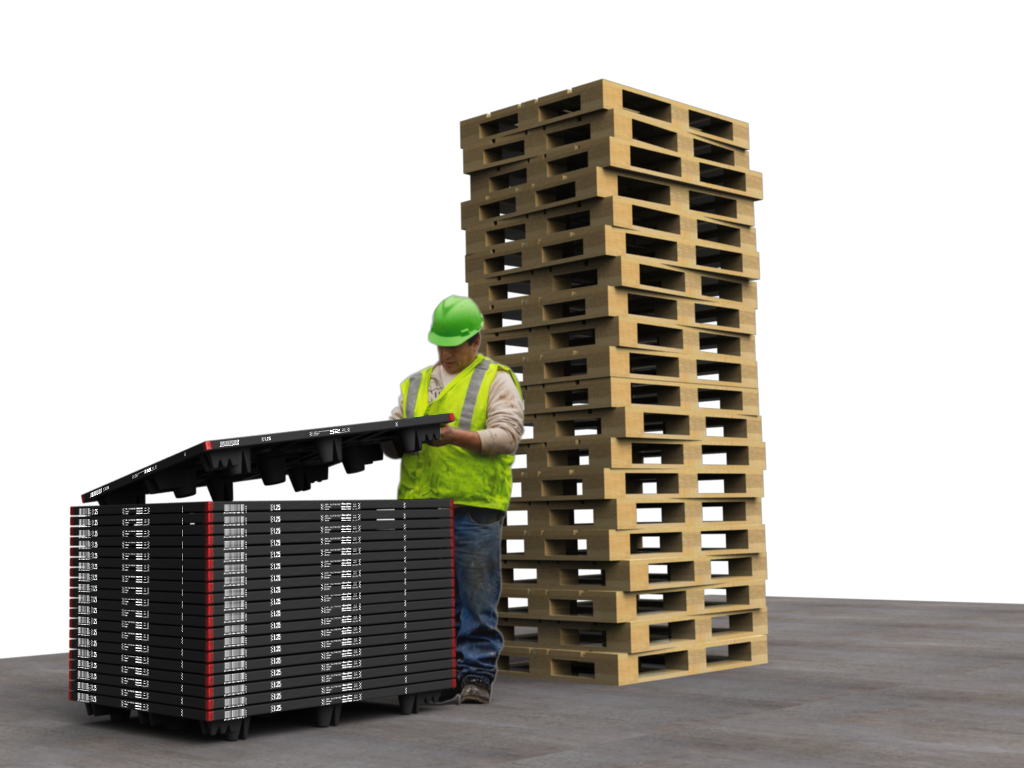Pallet Earth is changing the way the world moves, challenging the worlds traditional supply chain infrastructure and use of wooden pallets, with its new generation of sustainable, trackable pallets.
In the wake of the pandemic, fruit and vegetable producers are facing new challenges such as sharp increases in fuel costs, sea freight rates and a range of sustainability issues. It has never been more important to harness technology to help improve efficiencies across the supply chain. “Our pallets deliver two significant advantages – reducing carbon footprint by up to 60 percent and reducing global supply chain costs by up to 50 percent,” says Dave Cashmore, Pallet Earth GM.
“There really is a smarter way to do things, with our pallets providing corporations circularly economical, yet sustainable, supply chain solutions to drive down costs, consumption and carbon.”
The pallets were developed following five years of R&D with key partners in New Zealand. Made from fully recycled, and recyclable plastic, with a robust inner steel frame, the pallets are also 100% ISPM15 compliant at all times.
Carl McInerney, UK & Europe Sales Director says this is a game changer for those importing and exporting in to and out of the UK. “Our pallets can provide peace of mind that products are fully complaint with new BREXIT phytosanitary requirements, removing the need for heat treatment or worrying about mould impacting quality.
“Using European based manufacturing, and with warehouses close to market, Pallet Earth is ready to support the import and export markets of Europe and the UK ensuring both compliance and smooth servicing for our clients.”
The pallet design supports both sustainability and cost benefits across the supply chain. The innovative nesting of the pallets allows for economical return to point of origin reduced return legs to a quarter of the cost of polled pallets, while also reducing C02 emissions by 8kg per pallet. The unique interlocking feature enables increased volumes to be moved – safely moving 50 pallets at a time compared to 13 stacked wooden pallets. Goods are also protected with an internal steel frame providing strength and stability to protect goods through transit, and air holes help keep fresh produce fresh.
“And they are fully trackable, with built in tracking allowing full visibility of products throughout the entire transport system, a particular benefit for fresh and frozen produce that requires specific cool chain measurements to be met, ensuring produce is at its best possible quality on arrival,” says McInerney. “With an increase in extreme weather events impacting growing seasons, eliminating waste and protecting the quality of the product is an important benefit, supporting the production of less product for the same return.”
Critical to Pallet Earth’s commercial success is its ability to cost-effectively manufacture at scale, while supporting the full life cycle of the pallets. “With all manufacturing partners now based in the UK we can repair, recycle and build our pallets to best serve our UK and European markets,” says McInerney
Recent analysis of the pallet system by strategic value chain consultants Incept.biz has also validated the products potential to revolutionise the way we ship products.
“For the pallets to be considered we need to provide a solution that will save money while delivering wider benefits. Incept’s analysis confirmed exactly that with our system found to cost just £4 per return trip,” says Cashmore.
The team is proud to be attending Fruit Logistic in Berlin from 8-10 March 2023, where the unique pallet solution can be viewed at the Pallet Earth Stand D-17 Hall 26. Attendees can also hear Dave Cashmore (GM) and Carl McInerney (UK & Europe Sales Director) discuss ‘Sustainability in global supply chains’ on the Tech Stage (Hall 2.1, B43) on Thursday 9 March.




